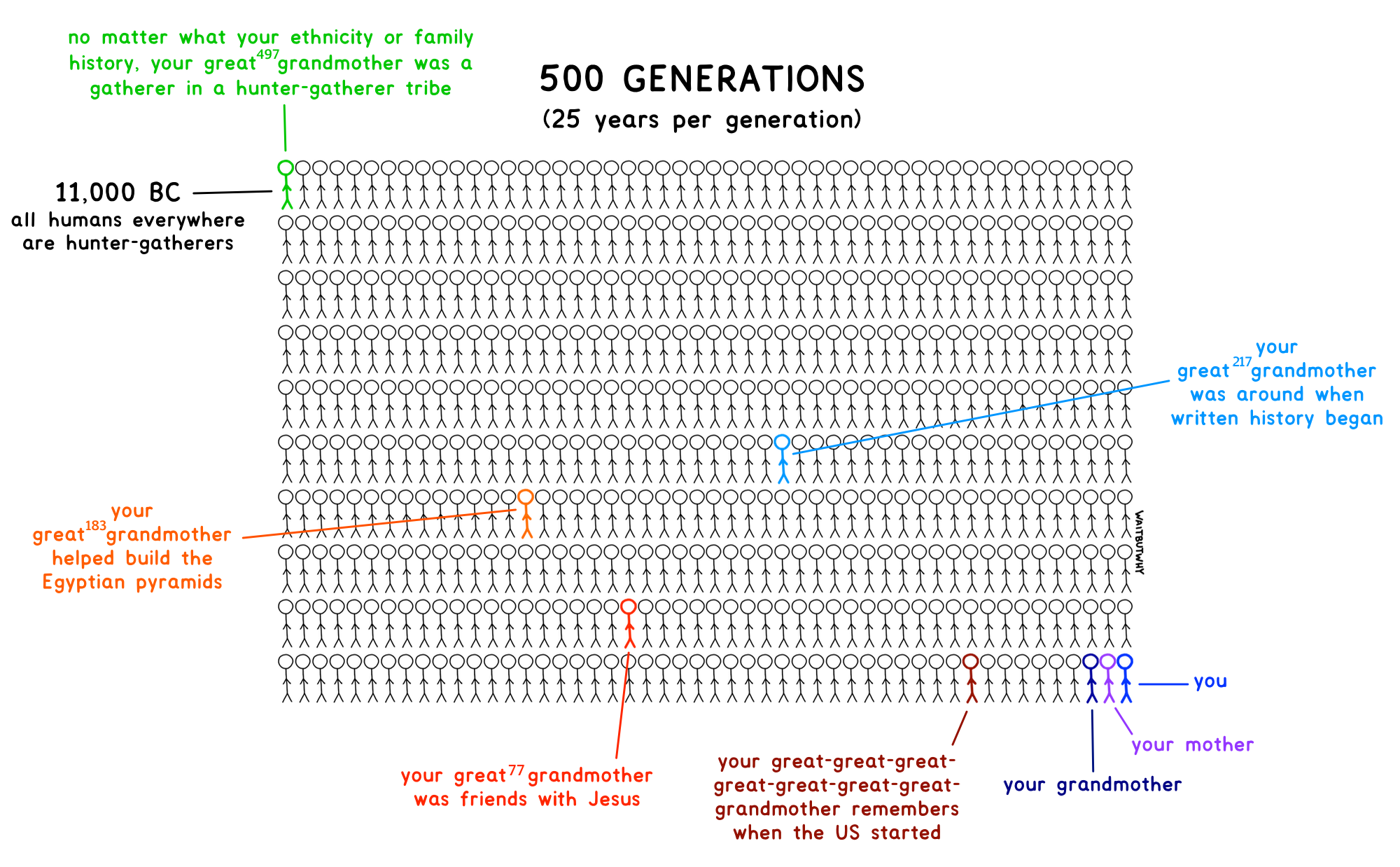Seventh Generation Principle
“Everything we call civilization was invented in the last 500 generations—way too short a time for our bodies and brains to re-optimize. We're a bunch of forest primates in a totally unnatural environment, trying our little best. Someone needs to give our species a hug.”
- Tim Urban, author of Wait But Why and one of the most popular writers on the Internet
A man called Deganawidah was born in Ontario, Canada in the 15th century. And he co-founded the Iroquois Confederacy, a political and cultural union of five American Indian tribes.
Mohawk, Onondaga, Oneida, Cayuga, and Seneca.
At the time, these five tribes shared the land we now call New York state. And they didn’t like each other. They clashed constantly.
Tribal honor codes mandated that one life must be paid for by taking another. The code was a problem.
But Deganawidah was an outsider.
He was born a Huron. So Deganawidah wasn’t subject to the code.
As a young man, Deganawidah had a vision. An idea. He wanted to “stop the shedding of blood among human beings.”
He tried getting his own tribe to buy into his idea. But they shrugged. So he traveled east, from Ontario to New York.
When he arrived in New York, he began to win the cautious approval of the warring tribes. With thoughtful words. And feats of bravery. One tribe at a time, he won their confidence.
And eventually, he replaced the code. Deganawidah united the five tribes to create the Iroquois Confederacy. His idea became an oral constitution. Possibly the first of a democratic federation.
He called it The Great Law of Peace.
The Great Law of Peace preserved and protected the independence and liberties of each individual, each clan, and each nation while uniting the five nations into a confederacy, committed to inward well-being and outward strength. Raw materials and hunting grounds were to be shared. All religions were to be accepted. Unauthorized search was prohibited. Immigration into a nation within the League was welcomed regardless of ethnicity, but predicated upon acceptance of the Great Law.
Some historians claim the democratic ideals in the Great Law of Peace influenced Benjamin Franklin, James Madison, and other framers of the US Constitution.
Humans, in our modern form, have been around for about 200,000 years. That’s about 8,000 generations. And everything we call civilization was invented in the last 500 generations.
We’re wired to do what it takes to survive another day. Another week. In harsh conditions with scarce resources.
That’s why sugar tastes good. And revenge feels good.
But while we may share survival instincts and a hypothalamus with all vertebrate animals, we also have a massive cerebral cortex.
And some argue we have a sacred spark.
So we also write symphonies. And constitutions.
And we can look beyond the next day, week, and year.
Parisians built Notre Dame Cathedral over 182 years. Seven generations of masons. Sculptors. And artists.
Humans are wired to survive in the short run. But at our best, we’re also uniquely capable of thriving in the long run.
What a gift we’ve been given by the artisans who laid Notre Dame’s foundation. Knowing they’d never see it finished.
The Iroquois knew this too. They believed in what they called the Seventh Generation Principle. A concept embraced more recently by environmentalists and advocates of sustainability.
The Iroquois believed it was appropriate to think seven generations ahead. To make decisions that would benefit their children seven generations in the future.
"In every deliberation, we must consider the impact on the seventh generation... even if it requires having skin as thick as the bark of a pine." - Iroquois saying
Silicon Valley investor/philosopher Naval Ravikant says, all self-help boils down to "choose long-term over short-term.”
Our ability to choose long-term is uniquely human. It sometimes requires having skin as thick as the bark of a pine.
But if we can consistently choose long-term, it’s a superpower. And a gift to ourselves. Our families. And children born seven generations in the future.
